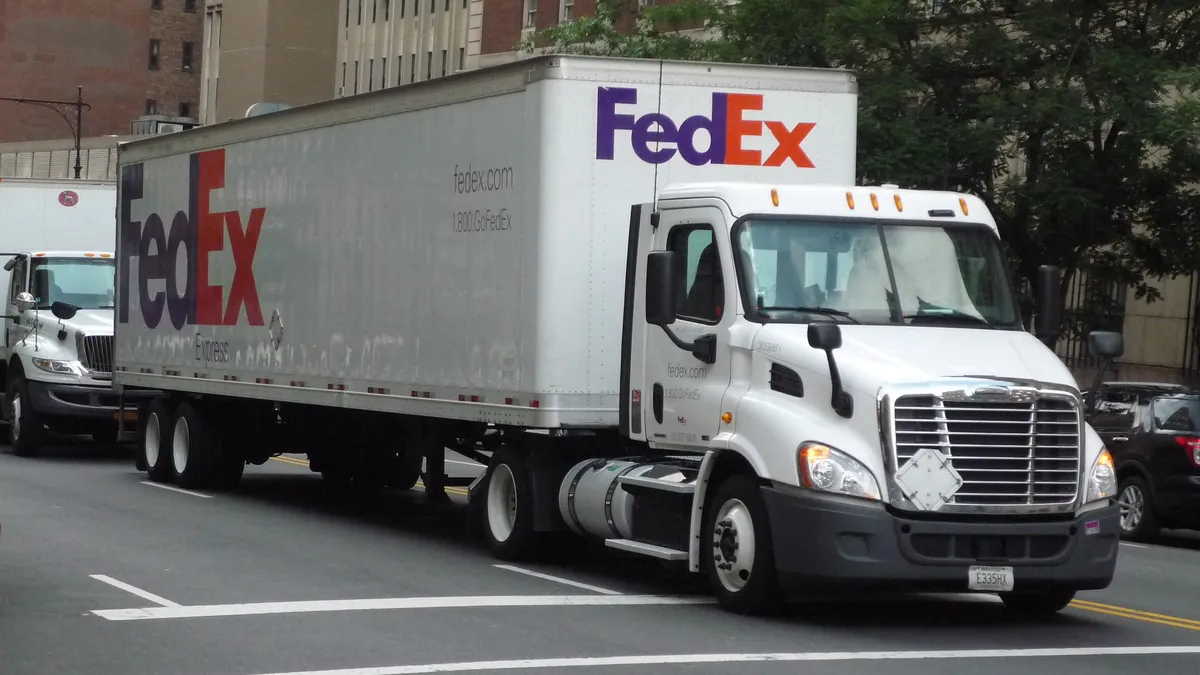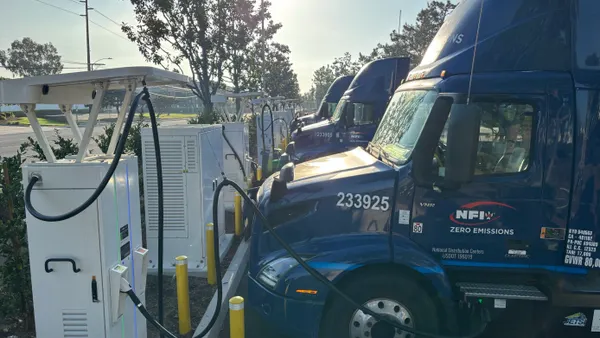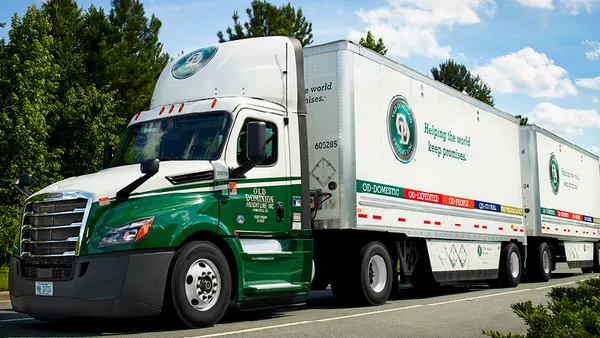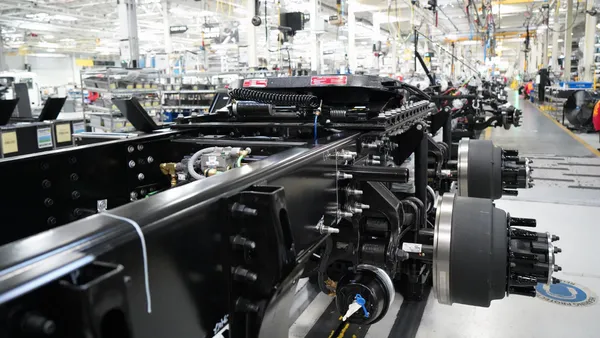Dive Brief:
- While overall demand for LTL dropped in 2019, FedEx saw a silver lining, as FedEx Freight's operation income jumped 16% year-over-year, the company said in its Q3 earnings call on Tuesday.
- Despite the spread of COVID-19, FedEx CEO Fred Smith said e-commerce continues to act as a "revolution" for the freight-and-parcel delivery sectors, and that he expects further growth stemming from online consumer behavior.
- FedEx reported a decrease in fuel costs, meaning FedEx Freight could deliver more for less. The lower fuel prices could keep costs down for the North American freight industry as consumer demand for food, medicine and household products shoots up during the COVID-19 crisis.
Dive Insight:
FedEx Freight experienced a reduction in volumes over the past year due to the slowing economy, according to Brie Carere, FedEx executive vice president and chief marketing and communications officer, speaking to investors on the Tuesday call. Yet FedEx Freight was able to keep expenses low, partially because of the type of revenue and business it attracted in the quarter, Carere told investors.
The company's freight revenue dropped by 1% to $1.74 billion from $1.75 billion in its third quarter of 2019, according to its earnings release. Other segments of FedEx took hits: FedEx Ground operating income dropped 39% while FedEx Express operating income dropped 65%.
But FedEx officials pointed to e-commerce business as a buffer during times of decreased volume and higher costs. FedEx overall revenue rose 3% to $17.49 billion in its third quarter, up from $17 billion a year ago. FedEx said its Ground segment handled a surge in e-commerce orders.
In the U.S., e-commerce will continue to drive delivery growth, Smith said, and FedEx will be a big part of it. "We can be the market leader and the low-cost producer," said Smith. "We have leaned into it."
Fuel costs dropped 3% from $907 million in 2019 to $879 million. Oil price has plummeted since the COVID-19 outbreak, and oil price was not that strong even before the illness began to spread in the United States.
Cost-cutting will be crucial for FedEx and other carriers in 2020. FedEx net income dropped 57% to $315 million in the third fiscal quarter, compared to $739 million in the same quarter in 2019. The lower overall performance, in the middle of a worldwide health crisis, has FedEx officials ready to slash.
To manage headwinds, FedEx will cut capacity, retire the oldest and least-efficient aircraft, integrate TNT Express, and lower residential delivery costs by having FedEx Ground deliver FedEx SmartPost and certain day-definite FedEx Express packages, said Alan B. Graf, Jr., FedEx executive vice president and CFO.
Smith told investors world GDP growth will be smaller in 2020, partially because of trade wars. FedEx officials suspended the company's fiscal year 2020 outlook because of COVID-19, due to the uncertainty caused by the coronavirus pandemic.











